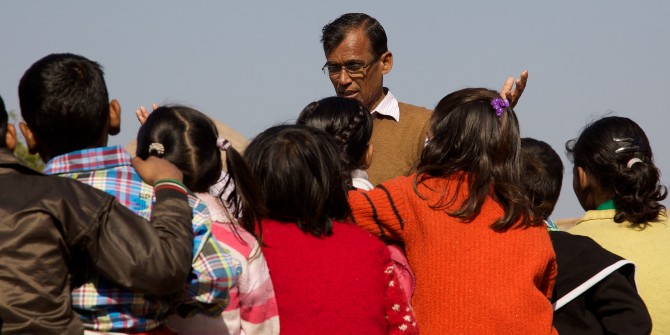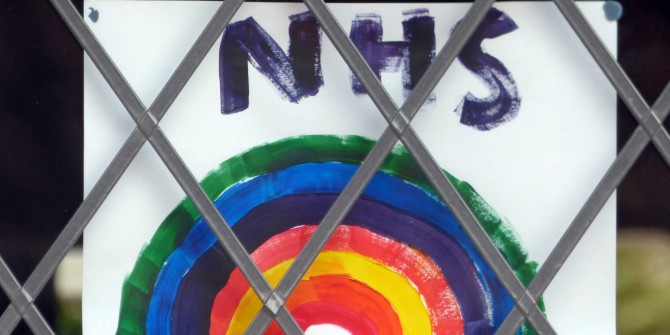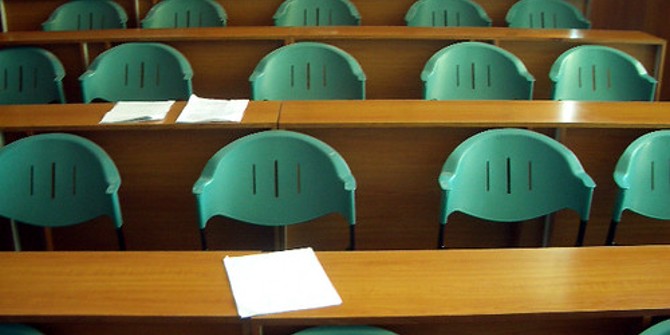Angana Das and Sreehari Ravindranath on how Indian schools can help children cope up with bereavement, trauma and learning loss.
Schools in India have been shut for over a year. Children from disadvantaged backgrounds have struggled to attend online classes. But for thousands of Indian children, the loss inflicted by COVID is even greater. The National Commission for Protection of Child Rights in India recently told the Supreme Court that 1,700 children were orphaned and 7,400 had lost one parent in the pandemic.
During the second wave of the virus, the child psychiatry unit in Mental Health and Neurosciences (NIMHANS) saw 80 to 90% occupancy on its wards, with children reporting acute depression, anxiety, and psychotic episodes. The helpline numbers of Bachpan Bachao Andolan, Protsahan India Foundation and Delhi Commission for Protection of Child Rights dealt with several cases where children required immediate support to cope with the loss of loved ones, financial hardship and emotional trauma. According to UNICEF, the mental health and wellbeing of at least one in seven children – or 332 million globally – have been put at risk due to stay-at-home orders, and 247 million children were affected by school closures and lockdowns in India in 2020. Ominously, this number is predicted to increase in 2021.
As we eventually prepare for Indian schools to reopen, we need to ask ourselves: What systems for social and emotional learning (SEL) are available for our children to help them deal with this unprecedented crisis? Are schools and teachers equipped to provide SEL support? A typical day at an Indian school consists of eight periods. Arts (music, drama, drawing) and sports, games or physical education are usually held once or twice a week. There is very little scope to change this timetable, as teachers are overburdened with trying to finish the syllabus. The noise around the cancellation of board exams is testimony to the importance given to exams. India’s rigid education system is not known for its adaptability and flexibility. Overcrowded classrooms restrict teachers from developing personal bonds with each child. Amid these realities, how do we create safe spaces for children to share their feelings, fears, apprehensions and lived experiences of the pandemic?

Emerging study data provides an insight into the challenges faced by children from vulnerable backgrounds during the pandemic. Findings from studies led by Save the Children, TISS and CRY indicate that children were no longer in contact with friends and their teachers and were experiencing fear, restlessness, sadness and poor quality sleep. They missed going to school, meeting friends and playing. Parents are increasingly stressed and irritated, leading to the violent punishment of children at home. Protsahan India Foundation’s study on the experiences of adolescent girls from marginalised backgrounds outlines incidents of sexual abuse among girls. Some fear they will drop out of the school system forever as they are now expected to get married or work.
We make the following recommendations:
Redefining the syllabus and learning: Cut down the syllabus to reduce the pressure on teachers. The digital divide is real, and it is not feasible to expect teachers and children to teach and learn at the same pace as in pre-COVID times. Use the experiences of children during the pandemic to reorient the curriculum, with a focus on teaching them about empathy and resilience and to cultivate critical thinking skills.
Social-emotional support: Implement SEL programmes for wellbeing in schools, and adopt practices such as mindfulness, relaxation activities and keeping gratitude journals. Create safe spaces for children to express their feelings and share their pandemic experiences. Talk about concepts like hope and resilience, through fun and engaging activities. Use storytelling methods and innovative resources to generate joy among children in these grim times. Empower them to become self-aware and regulate their own emotions.
Preparing teachers to support SEL: As well as training teachers in using digital tools and holding online classes, provide them with adequate training in the psychological wellbeing of children. We need to optimise teachers’ ability to adopt SEL methods and develop supportive and encouraging relationships with their students.
NGO partnership with schools: Indian schools are traditionally focused on imparting academic knowledge. Collaborating with NGOs and other educational research organisations with a focus on SEL approaches can be a chance to share best practice.
Central resource portal: The National Council of Educational Research and Training should develop a repository of online resources (audio, video, text) on SEL with a training manual (in multiple languages) which is easy to understand by teachers across varied contexts in the country.
Building community and family resilience: Schools should involve communities and families as a support system to respond to wellbeing needs of children, especially for students from vulnerable backgrounds.
Supporting the most vulnerable children: School closure has affected all students, but the impact has been especially severe on children from vulnerable backgrounds. We need to focus on the needs of children who have been subjected to domestic abuse, belong to broken families, are exposed to community violence, are burdened with domestic duties, and lack access to sexual and reproductive care, etc.
Budget for SEL: Allocate a part of the education budget specifically to hire counsellors, mental health professionals, design SEL modules, adapt them in regional languages and provide training for teachers. Each school must appoint trained counsellors who take on a major role in addressing the stress and anxiety of children. Children who have faced severe trauma can benefit from timely intervention.
We cannot embrace the ‘new normal’ without addressing the unprecedented stress, anxiety and trauma faced by our children.
This post represents the views of the authors and not those of the COVID-19 blog, nor LSE.





